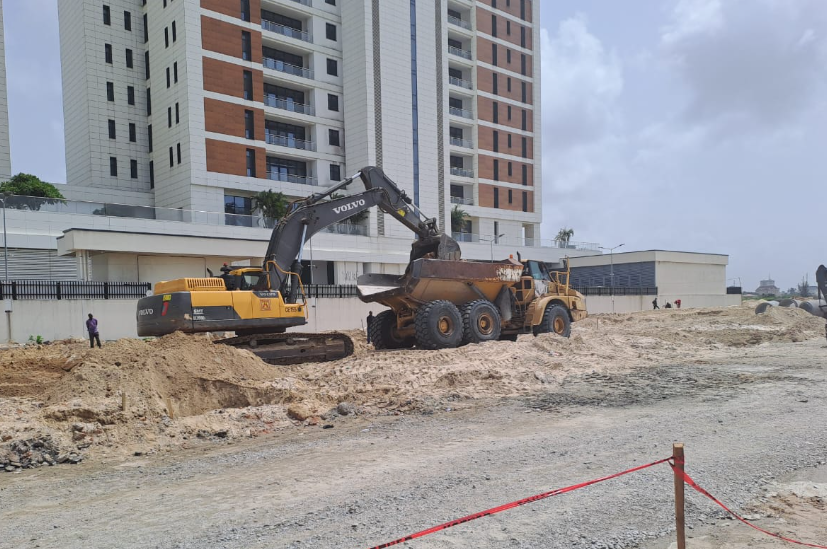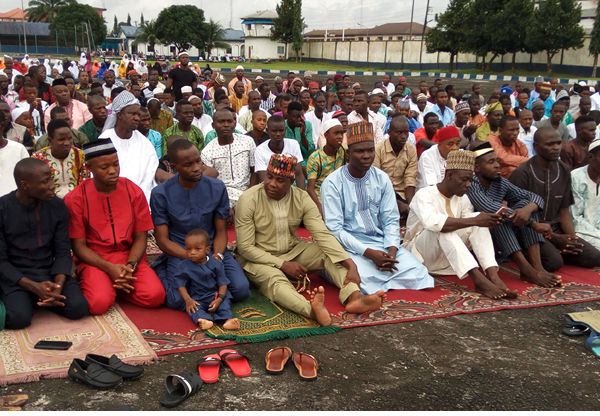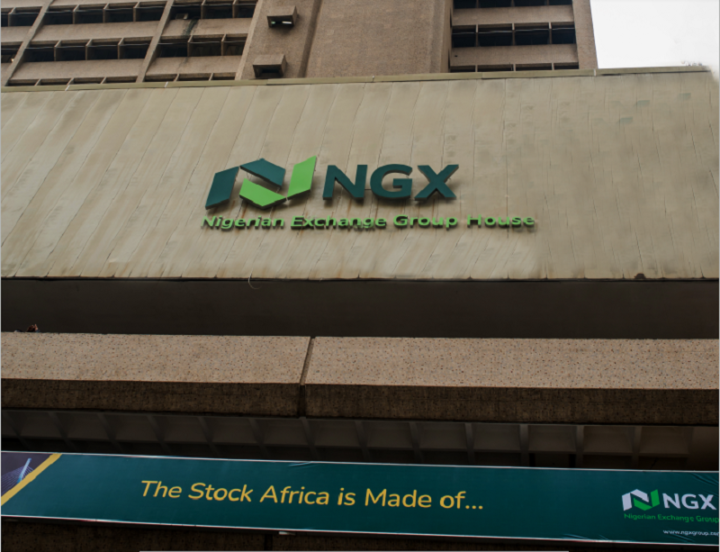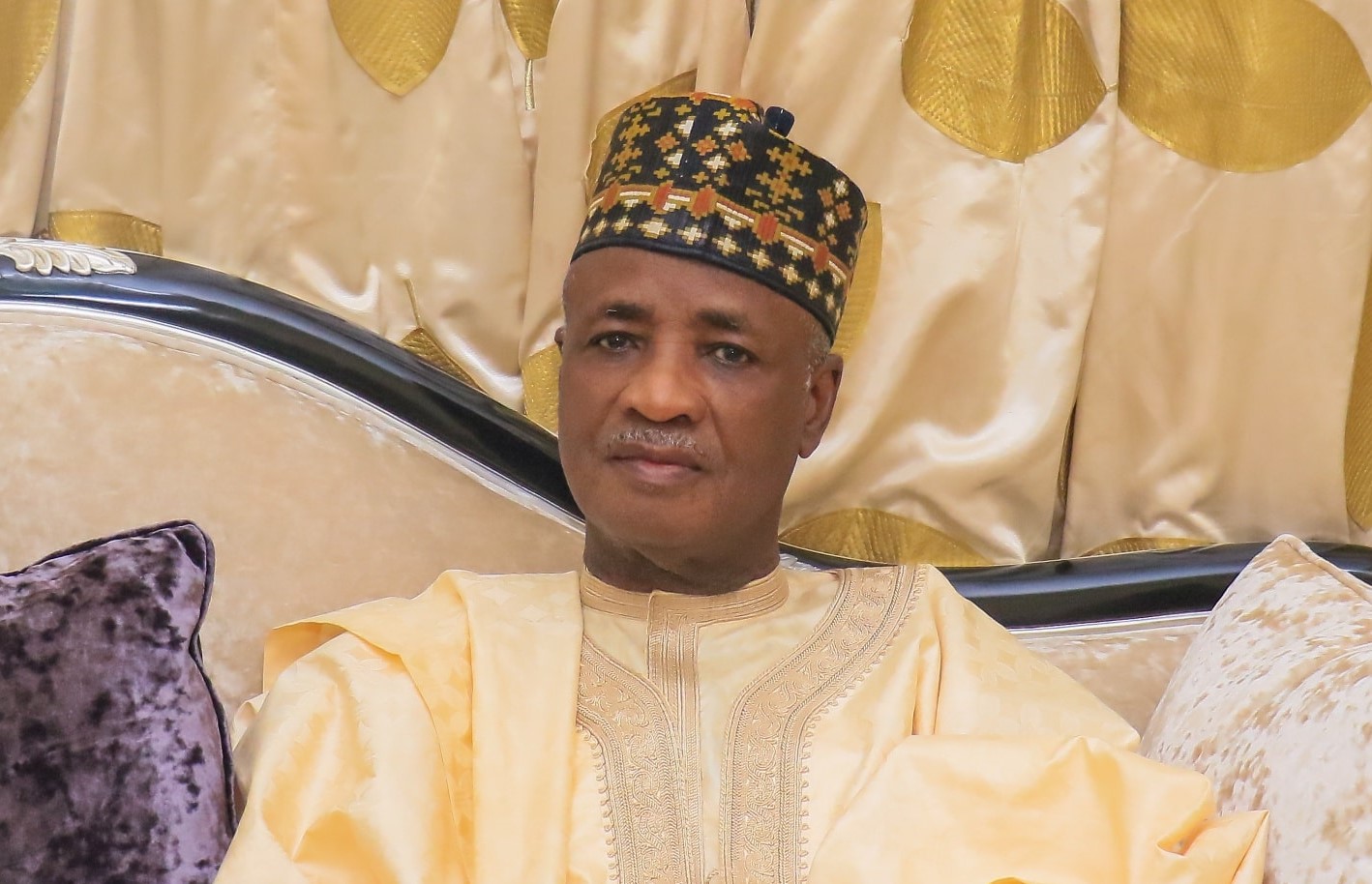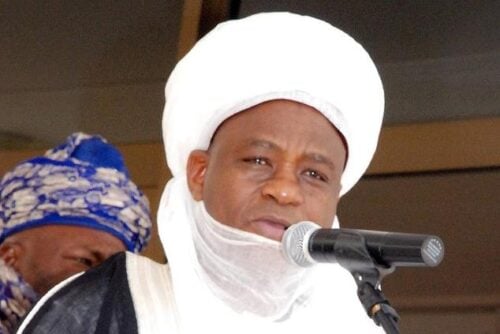Atiku Abubakar, former vice-president, says President Bola Tinubu placed his personal business interest ahead of Nigerians with the Lagos-Calabar coastal highway project.
Abubakar said the 700-kilometre (km) Lagos-Calabar coastal highway project was awarded to Hitech Construction Company Limited (Hitech), owned by Gilbert Chagoury.
He spoke in a statement signed by Paul Ibe, his media adviser, on Sunday.
Abubakar, who said Tinubu’s administration has inadvertently revealed its penchant for “dubious and shady deals” through the project, described Chagoury as “Tinubu’s business partner”.
Advertisement
“More curious is the fact that the entire pilot phase of this project begins and ends in Lagos, especially within the axis of Bola Tinubu’s business interests. It is no secret that both Tinubu and Chagoury are business partners,” Abubakar said.
“This same Hitech, owned by Chagoury, was unable to complete the 50km Lekki-Epe Expressway. Despite installing two tollgates along the axis, Hitech which was part of the Lekki Concession Company (LCC) consortium was only able to construct about 20km, forcing the Lagos State Government to buy it back at the cost of N7.5 billion ($50 million at the time) in 2013 which came at a loss to the people of Lagos.
“Tinubu has once again put his personal business interest ahead of that of the Nigerian people in violation of his oath of office where he swore that “I will not allow my personal interest to influence my official conduct or my official decisions”.”
Advertisement
FROM ZERO COST TO N15.7 TRILLION
Abubakar also estimated the Lagos-Calabar coastal highway project could cost the federal government “N15.7 trillion”.
He said the estimate is based on the N1.06 trillion earmarked for 47.47 kilometres (km) (pilot phase) of the coastal highway by Dave Umahi, minister of works.
“But if 47.47km costs about N1.06tn, it means each kilometre is being built at N22.5 billion or $18 million. For a project that is going to be 700km, it means the total cost could be N15.7 trillion or $12.56 billion, which is higher than previous estimates,” he said.
Advertisement
Abubakar said Umahi, in September 2023, had assured the project would not cost Nigeria a penny after the project was awarded to Hitech Construction Company Limited, revealing the agreement between the company and the federal government was a public-private partnership (PPP).
He said Hitech would build, operate and transfer, meaning after operating it for some years and recouping its investment through tollgates, the company will hand over to the Nigerian government.
Umahi, on September 23, 2023, had said the company had already found the money needed to finance the project, however, Abubakar said in March 2024, the minister returned to federal executive council (FEC) with a memo, seeking the approval of N1.06 trillion that would be paid to Chagoury’s firm for the first phase of the project which is wholly in Lagos.
“Umahi refused to reveal how much the project would cost. He only explained that it would run through nine states and would have a rail road running through the middle. Most importantly, the works minister said the project would come at zero cost to Nigeria, which is currently facing an all-time high level of debt,” he said.
Advertisement
“The works minister even stated, “Let me announce that it is under public-private partnership. The Hitech group are going to look for the money. They have already found the money, and that is the good news because we don’t waste our time talking and holding meetings and wasting resources.”
Abubakar said because the project did not require public funds, it did not go through approval from the national assembly, which holds the power of appropriation.
Advertisement
Also, Abubakar said the project only went through the Infrastructure Concession Regulatory Commission (ICRC) with no record of competitive bidding because Hitech was to fund the project 100 percent.
“This pilot phase was to begin from the edge of Chagoury’s Eko Atlantic City on Ahmadu Bello Way, Victoria Island, and terminate at the Lekki Deep Sea Port, Ibeju-Lekki, a distance of 47.47km. Till date, the Tinubu administration has refused to reveal how much the project will cost in total. Umahi, who even came on Channels Television recently, evaded questions as to the total cost of the project,” he said.
Advertisement
ESTIMATE HIGHER THAN TOTAL COST AGREED BY PREVIOUS ADMINISTRATIONS
Abubakar condemned the federal government for not disclosing the total cost of the project as done by Goodluck Jonathan and Muhammadu Buhari’s administrations, saying it has been shrouded in secrecy.
Advertisement
He said Tinubu’s administration has significantly increased the cost of the project, from $11.97 billion negotiated by Jonathan’s government with China Civil Engineering Construction Corporation (CCECC) and the $11.1 billion later agreed on after Buhari’s administration renegotiated.
“This project returned to public discourse at the twilight of the Goodluck Jonathan administration in November 2014 wherein it was announced President Jonathan had signed the 10-state, 22-station project with China Civil Engineering Construction Corporation (CCECC) at a cost of $11.97bn,” Abubakar said.
“However, former President Jonathan could not begin the project before he lost the election. But his successor, former President Muhammadu Buhari expressed his intention to begin it and announced in 2016 that the project had been renegotiated downward by $800m to $11.1bn and that it would be ready within three years. But it continued to stall.
“In August 2021, while Buhari was on vacation, it was announced by then Information Minister, Lai Mohammed, that the FEC had “approved the memo for the ratification of the president’s approval for the award” of the $11.1 billion project, and that it would be completed in six years. But nothing was done.”
FEAR OF JOB LOSS, PROJECT ABANDONMENT
In the statement, Abubakar said the project is expected to lead to loss of jobs, citing a possible demolition of Landmark Beach Resort in Oniru, Lagos state.
“It is curious that the terms of such an audacious project continues to be shrouded in secrecy. Worse still, it is expected to lead to job losses like the demolition of Landmark Beach Resort in Oniru which will lead to the loss of over 12,000 direct and indirect jobs and over $200m in investments according to its management,” Abubakar said.
Speaking further, the former vice-president said there are also fears that the project will never get to Calabar because the pilot phase from Eko Atlantic to Lekki Deep Sea Port was initially conceived as a Lagos state government project, but the federal government is now implementing it under the guise of the Lagos-Calabar coastal highway.
“The so-called pilot phase from Eko Atlantic to Lekki Deep Sea Port was initially conceived as a Lagos State Government project but because of its huge cost coupled with the fact that Lagos State has a huge debt burden no thanks to Tinubu, the Federal Government is now implementing it under the guise of Lagos-Calabar Coastal Highway. This perhaps explains why there are fears that the project will never get to Calabar, and this is the same reason the project is beginning from Lagos and not Calabar,” Abubakar said.
Abubakar said Tinubu’s administration is also planning to set up a renewed hope infrastructure development fund (RHIDF) to finance the highway project — despite not revealing the total cost.
“Despite not revealing the cost of this entire project, the Tinubu administration is now on the verge of setting up a so-called Renewed Hope Infrastructure Development Fund, a fund targeted at constructing capital projects without the usual budgeting process,” Abubakar said.
“With a target of N20 trillion or $14.5 billion as seed capital, the fund targets the Lagos-Calabar coastal highway and other projects. The initiative targets Pension Funds, Concessionary Loans, insurance companies, sovereign wealth funds, private sector arms of multilateral development institutions, and bilateral private sector investors, among others, to secure $35bn annually. The Diaspora funding and equity and endowment funds are also expected to play their part in the plan.
“But this renewed hope fund, which will be spent at the discretion of Tinubu and without transparency, will likely become another means of siphoning public funds through shady projects.”
Abubakar said with the current Lagos-Calabar highway project already being handled in secrecy, it remains to be seen how such a fund will be managed.
On March 25, Tinubu approved the creation of the renewed hope infrastructure development fund.
Add a comment
